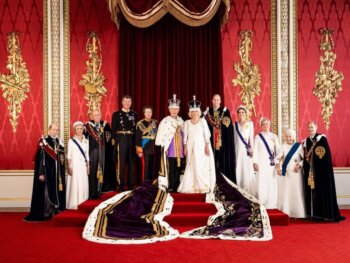
Pride 2023: Why Is India’s Supreme Court Taking So Long To Legalize Same Sex Marriage?
Lifestyle Jun 22, 2023
In April of this year, Supriyo Chakraborty and Abhay Dang initially petitioned the Supreme Court of India to allow hearings in the hopes of recognition and legalization of same-sex marriages. Since then the list of petitioners has grown. While India awaits the Supreme Court’s decision (as they recently concluded their hearings), those who are opposed as well as in favour, have boosted their voices by airing their concerns. This Pride Month we take a look at what is at stake, why it’s taking so long for the court to render a decision, and what it could mean for the South Asian sub-continent if India becomes worlds the largest country to legalize same-sex marriage.
Pride Month is upon us, which is often seen as a time of good fun and celebration, but it’s so much more than that. This month is dedicated to honouring the June 1969 Stonewall Uprising that took place in Manhattan, New York, in the United States of America. On June 28, police brutally raided the Stonewall Inn, which was frequented by the LGBTQ community. People had had enough and fought back against the police, leading to about 400 people gathering to riot over five days, notes Britannica. This riot is what kickstarted the fight for rights for members of the LGBTQ community in the United States.
Over 50 years later, there are still LGBTQ community members around the world, such as in India who are fighting for their rights.
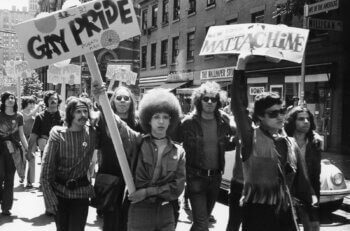
Here’s the breakdown:
Chakraborty and Dang celebrated their union with a commitment ceremony a couple of years ago, but have not been able to officially get married. This is because of India’s Special Marriage Act, 1954, which doesn’t recognize same-sex marriage. As a result, same-sex couples are not able to realize the same legal rights as other married couples, “…such as making health-care decisions for one another or getting health insurance together,” says CBC.

As such, Chakraborty and Dang have since brought forward a petition to the Supreme Court to update the outdated laws. For instance, “their petition argues that India’s Special Marriage Act, 1954 should allow same-sex couples to have the same legal right to marriage as opposite sex couples and that denying them that right violates several articles of India’s constitution. [As well,] the way the Special Marriage Act is written assumes the parties entering into a marriage are biological male and female and identify as such. It also refers to the “husband” and the “wife.” [However,] “[it] should be read as ‘spouses’ so that it encompasses people irrespective of their sex or gender identity,”” explains CBC.
However, that’s not all. There are even limitations placed on Indians by the Foreign Marriage Act, that “…pertains to marriages overseas in which at least one spouse is Indian,” highlights CBC.
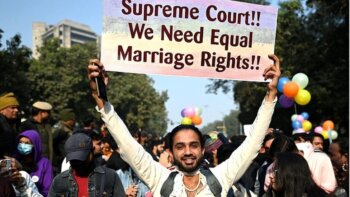
That said, it’s interesting to note that the LGBTQ community is thought to have once been embraced in India. CNN describes that “Sculptures and monuments at historical sites such as Khajuraho and Konark are “examples of acceptance and accommodation within those ancient Indian cultures, which was completely wiped away through this subsequent bringing of Victorian morals.””
However, today, identifying as LGBTQ is seen as a source of shame for many who end up hiding their sexual identity or leaving India altogether to be free to embrace who they are.
What’s the holdup?
As you can imagine, this process hasn’t been a smooth ride. A five-judge Supreme Court panel was scheduled to begin “…hearing final arguments over granting legal recognition to same-sex marriages on April 18,” highlights CBC. Proceedings came to a halt though, “…due to the unavailability of Justices Sanjay Kishan Kaul and S Ravindra Bhat, the Supreme Court,” explains Mint.
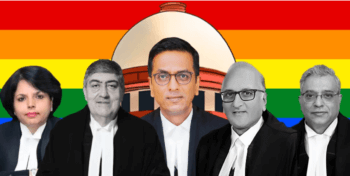
While the two Justices may genuinely be unavailable due to other obligations, the significance of the decision at hand and the opposition it continues to face in India does make one wonder if this delay is purposeful.
That said, many are hopeful that the court will rule in favour of legalizing same-sex marriage when the Supreme Court resumes in July.
What does it all mean?
If the Supreme Court panel rules in favour of legalizing same-sex marriage in India, this would make India the largest country in the world to legalize same-sex marriage. For same-sex couples, being able to officially marry their partners and have them be legally recognized would be a monumental win for the LGBTQ movement in India. More than that though, being seen is such a powerful and uplifting feeling. As well, being afforded the same rights as heterosexual couples would be a significant win, as they’d be able to seek out surrogacy or adopt a child, among other important matters.
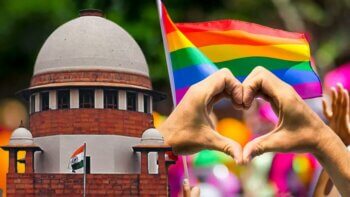
In addition to overcoming these hurdles, legalizing same-sex marriage in India would make the idea of staying in India more appealing. For instance, CNN notes that “…many LGBTQ Indians who move or stay abroad where they can embrace their identity, find love, and live with more rights and little stigma.”
That said, it’s not reasonable to expect that same-sex marriages are going to be warmly embraced overnight by a positive ruling. However, a favourable ruling would be a significant step in the right direction to truly beginning to break down the stereotypes surrounding same-sex marriage in India, and the South Asian community, in general, and that is equally important, if not more.
Main Image Photo Credit: www.pexels.com
Devika Goberdhan | Features Editor - Fashion
Author
Devika (@goberdhan.devika) is an MA graduate who specialized in Political Science at York University. Her passion and research throughout her graduate studies pushed her to learn about and unpack hot button issues. Thus, since starting at ANOKHI in 2016, she has written extensively about many challe...













































































































